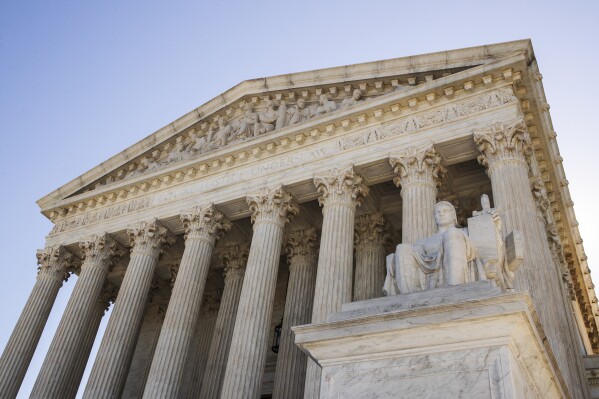Louisiana’s struggle with influx of salt water prompts a request for Biden to declare an emergency
BATON ROUGE, La. (AP) — A mass inflow of salt water from the Gulf of Mexico creeping up the drought-stricken Mississippi River is threatening drinking water supplies in Louisiana, prompting Gov. John Bel Edwards to ask President Joe Biden for federal help.
Edwards sent a letter Monday evening saying the issue “is of such severity and magnitude” that state and local authorities can no longer manage it on their own. Federal assistance is “necessary to save lives and to protect property, public health and safety or to lessen or avert the threat of a disaster,” Edwards wrote.
If Biden approves the request to declare an emergency, it would help Louisiana secure federal money and logistical assistance from partners such as the Federal Emergency Management Agency.
For the second year in a row, salt water from the Gulf of Mexico has moved further up the Mississippi to threaten drinking water in communities that rely on the river for fresh water, including New Orleans. Typically, the river’s mighty flow keeps mass amounts of salt water from reaching too far inland, but hot and dry conditions across the country this summer triggered drought that slowed the Mississippi’s flow and lowered its water levels.
 The Supreme Court will let Alabama’s congressional map be redrawn to better represent Black voters
The Supreme Court will let Alabama’s congressional map be redrawn to better represent Black voters
 What is saltwater intrusion and how is it affecting Louisiana’s drinking water?
What is saltwater intrusion and how is it affecting Louisiana’s drinking water?
 Huskers ramp up their ground game with Haarberg and Grant in a 28-14 win over Louisiana Tech
Huskers ramp up their ground game with Haarberg and Grant in a 28-14 win over Louisiana Tech
For months, drinking water advisories have been issued for some communities in southeastern Louisiana, warning people the water is unsafe to drink, especially for people with kidney disease, high blood pressure, those on a low-sodium diet, infants and pregnant women.
In parts of Plaquemines Parish, residents have relied on bottled water for drinking and cooking since June.
“We have had discussions with FEMA about the unique challenges we face with this event,” Edwards said in a news release. “We are optimistic the President will approve our Federal Emergency Declaration, which will be crucial to help our communities.”
Edwards said 23,515 residents in Plaquemines Parish have been affected by the salt water, including those at a military base, a nursing home, 11 schools, a prison and citrus farms.
Residents have reported skin irritations and damaged appliances, including water heaters and washing machines, from salt exposure.
The salt water is expected to reach other drinking water supplies further upriver — including Orleans, St. Bernard and Jefferson parishes — by mid-to-late October, Edwards said.
Officials are addressing the issue in multiple ways, including raising the height of an underwater levee used to block or slow the salt water and bringing in 15 million gallons of fresh water to treatment facilities in impacted areas.
Disclaimer: The copyright of this article belongs to the original author. Reposting this article is solely for the purpose of information dissemination and does not constitute any investment advice. If there is any infringement, please contact us immediately. We will make corrections or deletions as necessary. Thank you.





